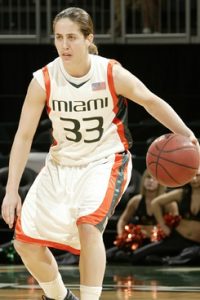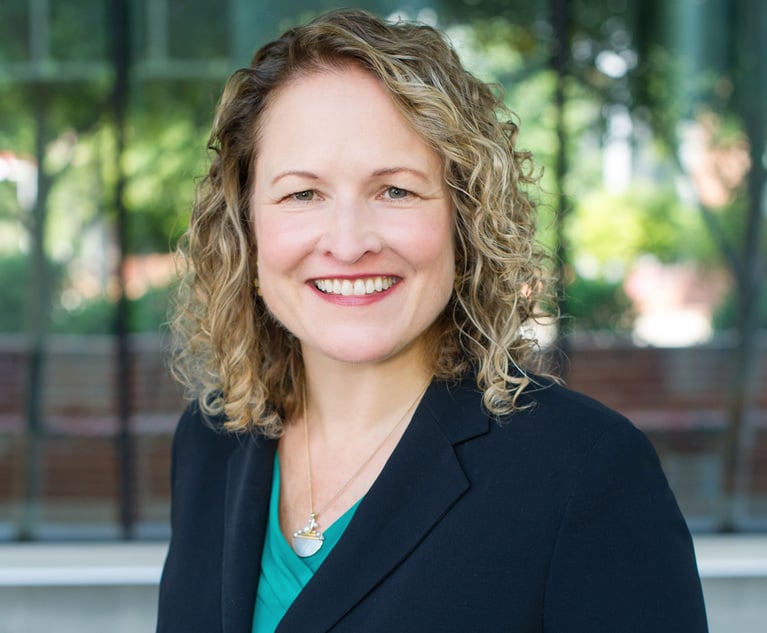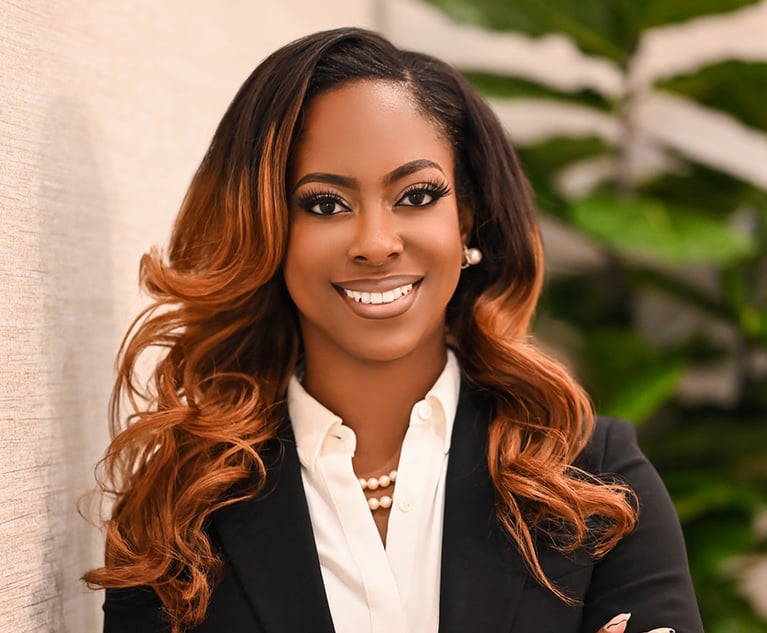What was your career journey before joining your present firm?
- I was an assistant state attorney for the Miami-Dade State Attorney’s Office from 2011-2015.
- I was a special assistant United States attorney for the United States Attorney’s Office from 2015-2018.
- I spent my career as a state and federal prosecutor dedicated to investigating and prosecuting violent crimes, including time in the Career Criminal Unit and the Gang Unit at the State Attorney’s Office.
What year did you make partner at your current firm? December 2019.
 Marianne Curtis. Courtesy photo
Marianne Curtis. Courtesy photo
What’s the biggest surprise you experienced in becoming partner? Not so much a surprise, more a benefit, is the ability to build, lead and recognize your team of associates, paralegals and legal assistants. Most partners are competent at the substantive work, but I believe what separates a good partner from a great partner/lawyer is dependent on the partner’s ability to communicate, inspire and delegate to their team.
What do you think was the deciding point for the firm in making you partner? As a starting point, and this is not just self-deprecation, I was a gamble for the firm. It is a daunting task to make the transition from criminal to civil litigation and there has been a litany of attorneys that have tried to make the transition and have been unable to do so. On top of that, I spent my entire career as a pure trial lawyer and being a litigator is not the same as being a trial lawyer. That being said, if I had to pinpoint the basis for making me partner, I would say it was a combination of a recognition of my work ethic, moxie and client service through obtaining results.
Describe how you feel now about your career now that you’ve made partner. The honor of becoming a partner made me want to level up even more. There is not a feeling of “I made it” and I can cruise on that accomplishment. Instead, I have doubled-down on the trust the firm has shown in me by creating a balance of my time between work as a technician and developing business by expanding my network in a genuine manner. This also includes creating a webinar series, The Blueprints, with my friend and fellow litigator, Michael Levine, where we address different substantive issues in a podcast-style format with the final 15 minutes of each installment dedicated to a conversation with a judge, practitioner, or someone with an additional perspective for the audience.
What’s the key to successful business development in your opinion and how do you grow professionally while everyone is working remotely? I know this sounds so basic, but I believe the best tool for business development is to do really good work and provide top-notch client service through honest and consistent communication. Results and happy clients breed new business. Beyond that, the foundation of all business development is through genuine relationships built over time—it is a marathon not a sprint. While all of us would prefer to be “back to normal” this time offers us a chance to be very efficient with our follow-up and communication with clients and contacts through Zoom and phone calls without long lunches, happy hours, and sitting in traffic.
What’s been the biggest change, day-to-day, in your routine since becoming partner? I am intentional and consistent with business development; I spend a portion of each day dedicated to follow-up and checking in with clients and colleagues. I also am dedicated to “paying it forward” to other lawyers by creating original and valuable content. In addition to The Blueprints mentioned above, Michael and I also created the webinar series Deposition 360, which allows me to take my experience as a trial lawyer (which included thousands of depositions) and create an annual program that goes into various aspects of a deposition by using real transcripts and strategies. I do not shield my “secrets” or work product from other lawyers because I want to see other people succeed and I believe there is enough room for everyone at the top.
 Marianne Curtis. Courtesy photo
Marianne Curtis. Courtesy photo
When I was 17 years old, all I ever wanted to be was a professional basketball player. I was on scholarship as a point guard for the University of Miami women’s basketball team before I had a career-ending ankle injury. I defined myself by my sport and the success I found until I suddenly no longer had it anymore. The advice I would give to my younger self based on my path would be that the key to your success and happiness will be to learn to find the joy in pivoting/redefining yourself throughout your life; and recognize the grace in your “failures” because they will become your greatest triumphs if you approach it with the right attitude.
Who had the greatest influence in your career that helped propel you to partner? Our firm’s founder, Paul Singerman, was the reason I came to the firm in the first place. He has believed in me from the beginning and I am a firm believer that when people believe in you, you prove them right. The other is Lenny Samuels, a partner at the firm for 30 years. Lenny gave me the greatest gift a partner can give an associate—trust. Once I started achieving results, he kept giving me more opportunities to grow and prove to the firm that I was worth partnership status. He has also been very influential in my choice to focus my practice area on employment litigation with a focus on noncompete and trade secret litigation while maintaining a commercial litigation practice. Both of them have been crucial mentors and have consistently supported me.
What advice you could give an associate who wants to make partner? Do not get too caught up in business development early on in your career. Be aware of the need to evolve your practice, but spend the early part of your career honing your craft and becoming indispensable to your firm by doing great work and being consistent with the energy and communication you bring to each day.
How do you network at a time like this? I set up 15-20-minute Zoom calls with clients and colleagues. I try to do about 10 per week (i.e., two per day). I also try to stay relevant in my social media connections in an honest and genuine manner; keep in mind that there is a fine line between sensory overload with content and getting your name on the market—I tread carefully.
Knowing what you know now about your career path, what advice would you give to your younger self. When I was 17 years old, all I ever wanted to be was a professional basketball player. I was on scholarship as a point guard for the University of Miami women’s basketball team before I had a career-ending ankle injury. I defined myself by my sport and the success I found until I suddenly no longer had it anymore. It was a really dark time in my life but it prepared me for the persistence and humility that my law career has required. This was never more evident as when I transitioned to private practice as I was hitting the peak of my career as a prosecutor—it was a job that felt like a calling and never felt like a job. So when I told people I was going to take a leap to private practice, most people thought I was crazy—and so did I. The first six months at the firm was a constant internal battle to trust the process and find the grit to persevere. Eventually, things started to click and I began to find the confidence that I had as a prosecutor. I have a long way to go and I will never stop learning, but the advice I would give to my younger self based on my path would be that the key to your success and happiness will be to learn to find the joy in pivoting/redefining yourself throughout your life; and recognize the grace in your “failures” because they will become your greatest triumphs if you approach it with the right attitude.
Find more career development insights from our ‘How I Made It’ Q&A series on law.com.










